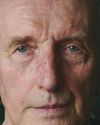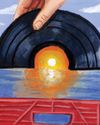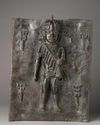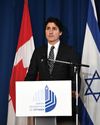
AFTER SPENDING 328 days in space, astronaut Christina Koch had another ambitious goal: to walk on the beach. In February, the forty-one-year-old returned to Earth after living aboard the International Space Station for almost a year and working a strenuous schedule that involved hundreds of science experiments and six spacewalks. (Koch was lucky: spacewalks are rare, and only some astronauts get to go outside during their missions.)
Astronauts often struggle with even the most routine physical activities, including walking, after experiencing the weightlessness of space. Some have returned from much shorter sojourns than Koch’s feeling so physically weak they collapsed during press conferences. Some have also struggled to ease back into everyday life after the thrill of a space mission. To improve the transition, every astronaut follows a tailored rehabilitation program when they return; in Koch’s case, that probably involved sixty days of training — split between nasa’s Johnson Space Center, in Houston, and her home — to readjust to Earth’s gravity. The beach wouldn’t mark the end of Koch’s training, but her coach knew that it would offer a mental health boost and that the astronaut’s desire to see the water again would get her through the first few days of exercises. A week after landing, Koch tweeted a picture of herself standing on a beach, arms outstretched in triumph.
This story is from the June 2020 edition of The Walrus.
Start your 7-day Magzter GOLD free trial to access thousands of curated premium stories, and 8,500+ magazines and newspapers.
Already a subscriber ? Sign In
This story is from the June 2020 edition of The Walrus.
Start your 7-day Magzter GOLD free trial to access thousands of curated premium stories, and 8,500+ magazines and newspapers.
Already a subscriber? Sign In

Invisible Lives
Without immigration status, Canada's undocumented youth stay in the shadows

My Guilty Pleasure
"The late nights are mine alone, and I'll spend them however I damn well please"

Vaclav Smil Is Fed Up
The acclaimed environmental scientist is criticizing climate activists, shunning media, and stepping back just when we need him most

It's Time for a Birth Control Revolution
What the pill teaches us about the failure - and future - of women's health care

Would You Watch a Play about Hydro Electricity?
How documentary theatre struck a chord in Quebec

Still Spinning
One record chain has bet big on a new appetite for physical media

Just So You Know, I Love My Mother
In many ways, multi-generational living makes sense. But that doesn't make it easy

Art of the Steal
Why are plundered African artifacts still in Western museums?

Canada in the Middle
What role can we play in easing the war in Gaza?
Canadian Multiculturalism: A Work in Progress
As we mark fifty years since the adoption of Canada’s federal multiculturalism policy, human rights advocate AMIRA ELGHAWABY celebrates its merits and reflects on the work that is yet to be done when it comes to inclusion, acceptance, and fighting systemic racism in our country.